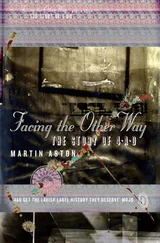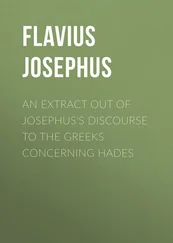Sarah Caudwell - The Shortest Way to Hades
Здесь есть возможность читать онлайн «Sarah Caudwell - The Shortest Way to Hades» весь текст электронной книги совершенно бесплатно (целиком полную версию без сокращений). В некоторых случаях можно слушать аудио, скачать через торрент в формате fb2 и присутствует краткое содержание. Жанр: Иронический детектив, на английском языке. Описание произведения, (предисловие) а так же отзывы посетителей доступны на портале библиотеки ЛибКат.
- Название:The Shortest Way to Hades
- Автор:
- Жанр:
- Год:неизвестен
- ISBN:нет данных
- Рейтинг книги:5 / 5. Голосов: 1
-
Избранное:Добавить в избранное
- Отзывы:
-
Ваша оценка:
- 100
- 1
- 2
- 3
- 4
- 5
The Shortest Way to Hades: краткое содержание, описание и аннотация
Предлагаем к чтению аннотацию, описание, краткое содержание или предисловие (зависит от того, что написал сам автор книги «The Shortest Way to Hades»). Если вы не нашли необходимую информацию о книге — напишите в комментариях, мы постараемся отыскать её.
The Shortest Way to Hades — читать онлайн бесплатно полную книгу (весь текст) целиком
Ниже представлен текст книги, разбитый по страницам. Система сохранения места последней прочитанной страницы, позволяет с удобством читать онлайн бесплатно книгу «The Shortest Way to Hades», без необходимости каждый раз заново искать на чём Вы остановились. Поставьте закладку, и сможете в любой момент перейти на страницу, на которой закончили чтение.
Интервал:
Закладка:
“Irritating,” I said. “One should think it fortunate, no doubt, that your cousin’s death is not a deep personal loss — at least to you. I fear it must have been so to your aunt and grandmother — they brought her up, I believe?”
“My grandmother is very old, Professor Tamar, and used to people dying. And Aunt Jocasta has been controlling her feelings for so long, I’m not sure she has any left to control. They brought up Deirdre, after all, because they could hardly avoid it: her parents died in a car accident, you know, and her father had no relatives. But of course they never cared about her in the way they do about Millie.”
For Jocasta, no doubt, it was a natural preference: to favor a daughter’s child above a sister’s is a customary inclination. I remembered, moreover, that her daughter had died in the same accident as Deirdre’s parents — if she blamed them for it, her feelings towards their child could hardly be unequivocal. But the girl’s grandmother, it seemed, without these motives, had also regarded Camilla as entitled to be preferred — as though she were marked by priority of inheritance to be the favorite of affection as well as fortune.
“You think, then, that there was no one,” I said, “who was much affected by your cousin’s death?”
“My mother was rather upset, I think. She was quite fond of Deirdre — at least, she tried to be. Poor Mama — she believes that if one loves people they become lovable: nothing disillusions her.” The malice of his smile was qualified by an indulgent tenderness. “And she was upset, of course, about the way it happened. She was the last person Deirdre talked to, and she had to give evidence about it at the inquest. It was all rather horrid for her.”
A lizard lying motionless in the warm sunlight was startled by some over-sudden movement of my hand, and disappeared with the swiftness of mercury through a crack in the weather-marbled stone. I wondered how far I might venture to pursue my questions without seeming more than idly curious.
“No doubt it is always disagreeable,” I said, “to be required to give evidence in court. One may be asked questions one would prefer not to answer, for some reason quite unconnected with the case in hand. I speak generally, of course — I do not imagine there was anything which your mother would not have wished to tell the Coroner.”
“As you say,” said the boy, as if the thought amused him, “there’s always something. She wouldn’t have wanted, for example, to tell him about the row between Rupert and my father.”
As one might have expected, it had been about politics.
In the cause of family harmony, Dorothea had sometimes in previous years coaxed one or more of her children to attend Rupert’s Boat Race luncheon party and present an appearance of amiability; but this, I gathered, was the first occasion that her husband Constantine had been among the guests. The poet, in recent years, had been very little in England, and the two men had seldom met; not often enough, certainly, to be friends; not often enough, it was rashly assumed, to be enemies.
Hostilities opened almost at once. The poet made some reference, as they sat down to lunch on the roof terrace, to the years he had spent in England when his native country was under the rule of the Colonels. Rupert took the opportunity to say that he personally had a lot of time for the Colonels, who had at least done something to get the Greeks to pull themselves together a bit. The poet responded with thoughtful civility, as if to a rather abstract proposition put forward in some impersonal political dialogue. Rupert said that he personally would rather see the Colonels back in power than a pack of so-called intellectuals who whined about free speech and probably took their orders from Moscow. And so forth: despite various attempts by those about them to change the subject to one less acrimonious, the two men continued thus throughout lunch.
From time to time during the meal there were exchanged between Leonidas and Camilla the apologetic glances and grimaces commonly employed by the young to deplore their parents’ conduct and their own inability to control it. The other guests, on the pretext of wishing to observe on television the scenes preliminary to the start of the Boat Race, escaped one by one to the comparative tranquility of the drawing-room; but Leonidas and his cousin continued to hover anxiously on the outskirts of the battlefield, watching for some opportunity to separate the combatants. Deirdre also, indifferent to the dispute and its outcome, chose to remain on the roof terrace.
Hopes of a cease-fire were raised when Rupert, at his daughter’s persuasion, went downstairs to make coffee for his guests; but the poet insisted on following his host — it would be discourteous of him to do otherwise, he said with apparent sincerity, when they were in the middle of such an interesting conversation.
“Parents,” said Leonidas, with a sign of remembered weariness, “can be very difficult.”
“They have suffered,” I said, “a traumatic experience — you must make allowances.”
Obedient to an appeal from Camilla that he should go after them and make sure they didn’t come to blows, Leonidas also went downstairs. In the kitchen, where Rupert was making coffee, battle had again been joined: Rupert was telling Constantine that he personally believed in old-fashioned democracy, and thought that anyone who didn’t should be put up against a wall and shot. It seemed to Leonidas, watching them, that his father’s Olympian serenity was driving Rupert into a kind of frenzy, as though the need to make the other man lose his temper had become with him an overmastering passion: his hands shook as he filled the coffee percolator, and there was sweat on his forehead.
The thought occurred to Leonidas after a few minutes that his own presence was not improving matters. He accordingly retreated to the drawing-room, and sat down with his Aunt Jocasta in front of the television set to watch the start of the Boat Race. Camilla, when she joined them, looked reproachfully at him; but he indicated, with an apologetic shrug of the shoulders, that he had done his best in the role of peacemaker and proposed to do no more.
The Fairfax twins had already installed themselves on the drawing-room balcony with a bottle of Rupert’s champagne: they would not have felt that Boat Race Day was Boat Race Day (said their half-brother tolerantly) if they had not jumped up and down waving blue handkerchiefs and shouting “Come on, Oxford” for at least ten minutes before the boats came into view. From time to time they called out to those round the television set to inquire who was leading and at what stage in the course. Leonidas joined them when the boats were approaching Chiswick. As he passed the kitchen he heard Rupert, more enraged than ever, asking whether Constantine was calling him a fascist.
His recollection was very clear of the moment at which the boats first came into view from the balcony, since it was also the moment at which Rupert was heard shouting that he wasn’t going to be called a fascist by a greasy little Greek gigolo.
“And that, of course,” said Leonidas, “was altogether too much.”
The poet had come out of the kitchen looking, as his son described it, all grand and patriarchal, and said they must leave at once: he evidently took it for granted that his stepchildren, as well as his wife and son, would accompany him in his departure. He stood in majestic silence while Lucinda went to call her mother to come down quickly from the terrace. When Dorothea, bewildered, appeared in the drawing-room, he told her only that Rupert’s opinion of him was such that he could no longer accept his hospitality.
“And we would have left,” said Leonidas. “But Lucian was still on the balcony — poor Lucian, he was really quite keen on seeing the Boat Race — and he noticed something odd going on the towpath. And it was because of Deirdre, of course.” He sighed: he had told me of these events in the light and ironic tone appropriate to an account of social discomfiture recollected in tranquility, and seemed almost to have forgotten that the quarrel between his father and their host had not been the chief catastrophe of the afternoon. “Poor Deirdre. But you will understand, Professor Tamar, that my mother would not have wished to tell the Coroner what Rupert said to my father.”
Читать дальшеИнтервал:
Закладка:
Похожие книги на «The Shortest Way to Hades»
Представляем Вашему вниманию похожие книги на «The Shortest Way to Hades» списком для выбора. Мы отобрали схожую по названию и смыслу литературу в надежде предоставить читателям больше вариантов отыскать новые, интересные, ещё непрочитанные произведения.
Обсуждение, отзывы о книге «The Shortest Way to Hades» и просто собственные мнения читателей. Оставьте ваши комментарии, напишите, что Вы думаете о произведении, его смысле или главных героях. Укажите что конкретно понравилось, а что нет, и почему Вы так считаете.












